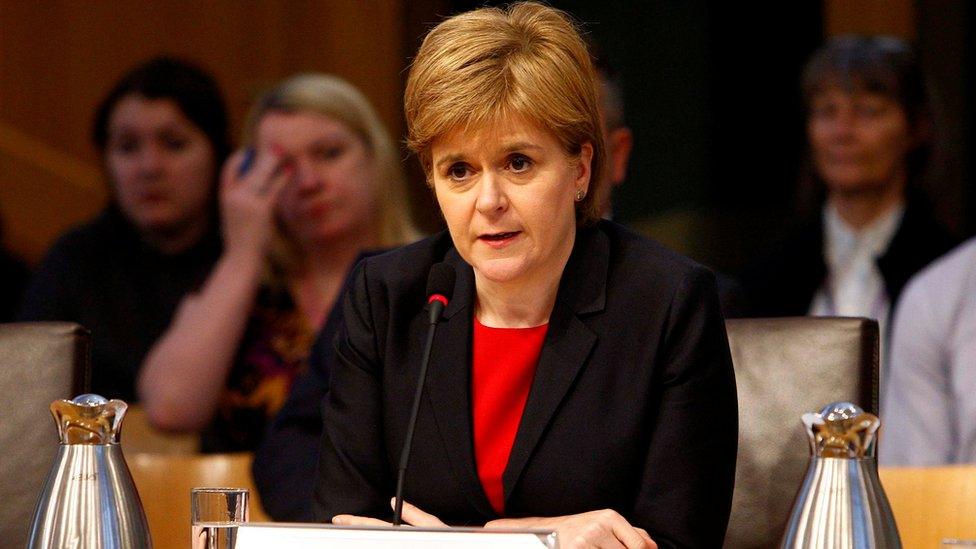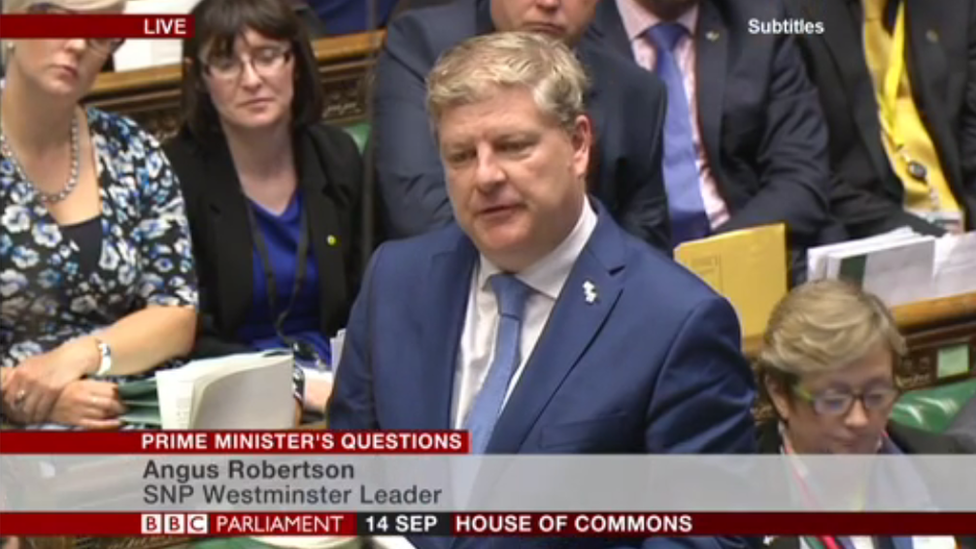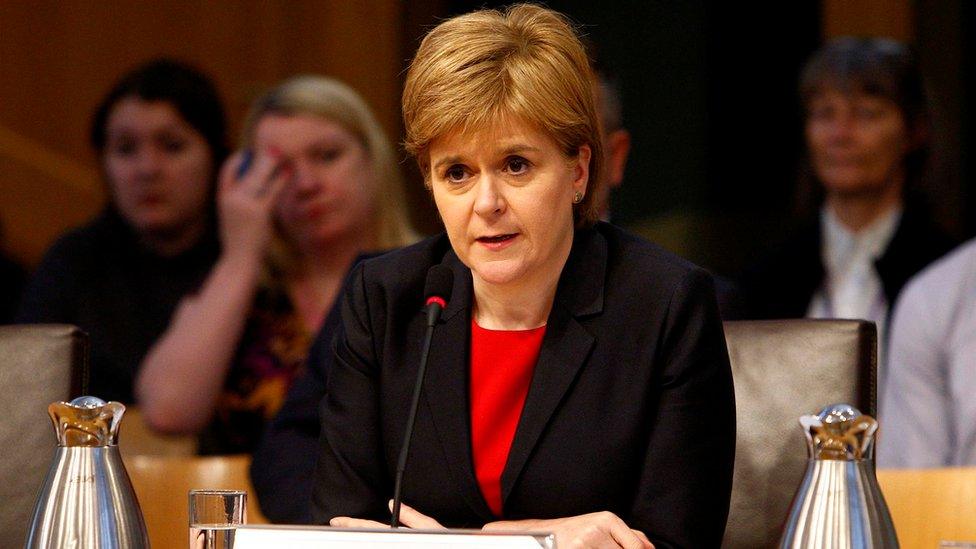Brexit: Nicola Sturgeon's linguistic conundrum
- Published

At Westminster, certain words just will not do. For example, an honourable member must not accuse another honourable member of lying. (The clue is in the adjectival description of MPs.)
Down the decades, there have been heroic efforts to obviate this wearisome constraint. Winston Churchill, most famous as the MP for the great and noble city of Dundee, took to suggesting that opponents and, even more commonly, colleagues were prone to "terminological inexactitude".
Holyrood has not devised a detailed linguistic code of its own. Myself, I would wish for a more widespread use of Scots, particularly of Dundonian derivation. I would like to hear our elected tribunes call a drain a cundie.
Mostly, however, Holyrood has tended to adopt the Westminster system, with perhaps a little more latitude.
Today, the first minister faced a conundrum. She had a word in mind. Indeed, it was plainly forcing itself upon her consciousness. But was it proper? Was it parliamentary?
Ayrshire sangfroid
Ach, go for it, you could see her concluding. And so she did. The absence of a clear road-map from the UK government as to Brexit was, she said, "gobsmacking."
Sardonically, she noted further that she and her predecessor had been expected during the 2014 referendum to detail the consequences of independence "from A to Z." Now it seemed that UK ministers were unable to offer even Plan A.
Now, Ms Sturgeon tends, mostly, to keep her cool. She brings to office an Ayrshire sangfroid - not, perhaps, words which are universally adjacent.
But one can envisage the occasional gripped telephone or banged desk as the Brexit process has advanced comme un escargot. At least, according to Ms Sturgeon.
To be clear, this is without getting down to details as to what Brexit might mean. At this stage, Ms Sturgeon says she is trying to sort out the process by which the UK's Brexit aims and objectives might be drawn up.

Angus Robertson raised the issue of Brexit during prime minister's questions
She wants, she told MSPs, to "embed" the Scottish government within that process. She hoped to be in a position to provide an update within a matter of days. Indeed, she had hoped to be already there.
The lack of such a deal was, she said, "frustrating." Again, one could detect a considerable degree of first ministerial angst underlying that bald description.
Tomorrow, Mike Russell, the newly appointed Minister for handling Scottish Brexit interests, will meet David Davis, the UK minister for enabling Brexit.
The objective, again, will be to finalise the process: the scope of Scotland's involvement in Brexit preparations.
Again, one can see difficulty ahead. Mr Russell and Ms Sturgeon may well want more than Mr Davis and Mrs May, are willing to concede. The UK ministers will be content to consult. They may be less eager to embed.
Meanwhile, at Westminster, Angus Robertson again tried to offer the prime minister a precise formula (this time about visa-free travel) to include in the UK's package of Brexit aims. Once more, Mrs May sidestepped his generous offer.
It was notable, however, that she stressed the importance of gaining added control over the movement of people to this country. At her side, Boris Johnson nodded vigorously.
In Strasbourg, meanwhile, Jean Claude Juncker, the European Commission president sought to soothe those whose attitudes remain decidedly communautaire. The EU would continue, he said. Indeed, he talked of further integration, including a military HQ. Implicitly, without Britain.
Turning explicitly to Brexit, he said that the departing UK could not expect full involvement in the single trade market without continuing to agree the free movement of labour. There could not be an à la carte approach to such matters.
- Published14 September 2016
